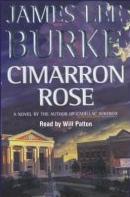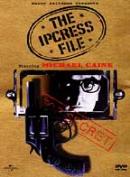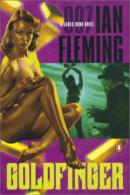Saturday, February 9: Mississippi Mud
LITERARY VS. GENRE
by John M. Floyd
 Several years ago, a fellow mystery fan mentioned something I found interesting. She told me she’d just finished James Lee Burke’s Edgar-winning novel Cimarron Rose, and said it was one of the best literary mysteries she’d ever read. A “literary” mystery? I wasn’t even sure you could use that term to describe what was essentially a crime story. When I later read Cimarron Rose, though, I realized she was right.
Several years ago, a fellow mystery fan mentioned something I found interesting. She told me she’d just finished James Lee Burke’s Edgar-winning novel Cimarron Rose, and said it was one of the best literary mysteries she’d ever read. A “literary” mystery? I wasn’t even sure you could use that term to describe what was essentially a crime story. When I later read Cimarron Rose, though, I realized she was right.
The words “literary fiction” mean different things to different people in the writing world. I suppose almost everyone would agree that it refers to stories that are primarily character-driven rather than plot- or action-driven, but there’s more to it than that. Literary fiction often uses more elegant and colorful language than “genre” fiction (also called “commercial” or “category” or “popular” fiction). And its endings are more likely to be vague and unresolved, and therefore more thought-provoking.
But I think the main thing that determines whether a fictional piece can be classified as “literary” is the extent to which the main character changes in the course of the story. In literary fiction, the protagonist almost always experiences a profound emotional change of some kind. The character discovers something about life, and either attains the peace or happiness or fulfillment he or she has been searching for, or finds out why it’s unattainable. Whatever happens, the hero (or a point-of-view character other than the hero, in cases like The Great Gatsby and Shane) usually finishes the story as a far different person from the one who began the story, because he has learned a life-altering lesson.
For all those reasons, I would call Cimarron Rose, and many other crime/suspense novels and short stories, literary as well as commercial.
My wife has her own view of all this. She maintains that anything that appears on The Hallmark Channel or anything chosen for Oprah’s Book Club is literary fiction. And she might be right. I certainly doubt that Hallmark will feature “Die Hard” or “Terminator 2” anytime soon, or that The Big O would endorse a Spenser novel or a Sue Grafton mystery.
 It should probably be mentioned that critics almost always prefer literary fiction to genre fiction. Stephen King has been trying to climb that particular hill for years, and has only recently received the critical praise he deserves. (The change seems to have begun shortly after he published the excellent short story “The Man in the Black Suit” in The New Yorker a few years ago.) And the same bias is true for movies. I remember seeing a poster long ago for “The Ipcress File”; that film was advertised as “The Thinking Man’s ‘Goldfinger’.” Maybe it’s just me, but that logline struck me as a little uppity — as if Ian Fleming’s best book, and also a good movie, could be appreciated only by idiots.
It should probably be mentioned that critics almost always prefer literary fiction to genre fiction. Stephen King has been trying to climb that particular hill for years, and has only recently received the critical praise he deserves. (The change seems to have begun shortly after he published the excellent short story “The Man in the Black Suit” in The New Yorker a few years ago.) And the same bias is true for movies. I remember seeing a poster long ago for “The Ipcress File”; that film was advertised as “The Thinking Man’s ‘Goldfinger’.” Maybe it’s just me, but that logline struck me as a little uppity — as if Ian Fleming’s best book, and also a good movie, could be appreciated only by idiots.
Speaking of Mr. Bond, I should add that in the case of genre fiction, the protagonist does not undergo great changes between the beginning and the end of the story. He or she remains pretty much the same — which is one reason Joe Leaphorn and Indiana Jones and Travis McGee and Stephanie Plum (and 007) make such good series characters. After all, nobody really wants them to change. Fans like them just fine the way they are.
To get back to the basics, here’s a quick list of what I believe are some differences between “genre” and “literary” fiction:
Genre stories and novels:
- are action-driven
- feature a hero who doesn’t change
- use simpler language
- favor entertainment over illumination
- may be a series
- are heavy on plot
- are faster-paced
- focus on external conflicts
- usually have a definite ending
- attract a larger readership
Literary stories and novels:
- are character-driven
- feature a hero who experiences change
- use more elegant, sophisticated language
- favor illumination over entertainment
- are usually standalone (non-series) stories
- are light on plot
- are slower-paced
- focus on internal conflicts
- are sometimes open-ended
- attract more critical acclaim
The kicker, of course, is that the very best fiction incorporates elements of both. Those stories, short or long, have great plots and strong characters, entertain and educate, use external and internal conflicts. Examples: The Godfather, Mystic River, To Kill a Mockingbird, Deliverance, The Silence of the Lambs, Lonesome Dove.
As a writer of short crime stories, I try hard to develop my characters and their relationships to the point that my “commercial” fiction sometimes qualifies as “literary” as well. (Most magazine markets state in their submission guidelines whether they will consider genre fiction at all, so it pays to know the difference.) One of my favorite mystery short stories — “Poachers,” by Tom Franklin — first appeared not in AHMM or EQMM but in The Texas Review. I’m sure it was accepted there because the language and message of the story was as literary as it was commercial.
A good way to end this discussion might be a little poem I published in Writer’s Digest, back when they featured light verse. It’s called “Literary vs. Genre”:
- With fiction, two choices
Are all that you’ve got;
One deals with the psyche,
One deals with the plot.

As for the poor hero,
More often than not,
One gets him befuddled
And one gets him shot.
By the way . . . purely literary fiction confuses not only the hero. It often confuses me as well.
I’d just as soon stick with “Goldfinger.”




















The Rule of Four could have been my candidate for favorite literary mystery if only murder had been more mysterious! Even so, it’s a great read.
Leigh, that was a great read. Among my other favorites that I believe might fit into that “category” are A PLACE OF EXECUTION (Val McDermid) , ROSE (Martin Cruz Smith), THE BOTTOMS (Joe R. Lansdale), and MYSTIC RIVER (Dennis Lehane). And I was pleased that the movie of Lehane’s novel was honored with so many awards.
That poem is HILARIOUS. And also apt.
Hi John,
When you listed the differences between Genre and Literary, I was about to argue because To Kill a Mockingbird popped in my head.
But, you followed the lists with this: “The kicker, of course, is that the very best fiction incorporates elements of both.”
Really well done!
Terrie
Loved the poem! Loved the whole thing. And I, too thought of “Mockingbird,” as I was reading this. It is worth mentioning that the book has made the top of lists of both literary and mystery fiction. (And when I was a little kid and saw my Dad engrossed in the book I wondered why they’d put out a book about how to kill birds!)
Laura, Jeff, Terrie, thanks for the kind words. As to the poem, believe me, I am no threat to Maya Angelou or Charles Simic.
Regarding MOCKINGBIRD, I was talking about it just last week with a friend — we agreed that it has a bit of everything: mystery, courtroom drama, coming-of-age story, Southern humor, life lessons, all rolled into one. When Scout sees Boo Radley standing there behind the door at the end, that’s a great moment in literature AND film.
You also already mentioned Joe Lonsdale’s The Bottoms, which, of course, owes quite a lot to To Kill a Mockingbird, and deservedly won an Edgar for Best Novel.
John, I’d agree that the best fiction incorporates elements of both. Three of the novels you cited in your reply to Leigh – A PLACE OF EXECUTION, THE BOTTOMS, AND MYSTIC RIVER – knocked my socks off in terms of their deep emotional impact and character exploration. All fiction, in my view, ought to be entertaining, but who’s to say entertainment cannot also include depth and meaning?
Great column.
While I am always sent to stand in the corner with my face to the wall during discussions such as this I found John\’s column informative and interesting. I wish one of you would do a critique on Georges Simenon\’s stories such as BIG BOB and the many others that did not feature Maigret. Don\’t misunderstand, I love Maigret. I would like to know if I am the only one in the world who marvels at Simenon\’s ability to set a scene in a single paragraph and have it permanently etched in the reader\’s mind – or at least my mind. Henry James would take fifty pages to do the same scene and in thirty seconds it would be forgotten. Is it just me or are others affected the same way by Simenon\’s writing?
I am not a slasher despite evidence to the contrary in the previous post. I have no idea how it happened.
John, you are, of course, entering into Ogden Nash territory!
(Not a bad place to be!)